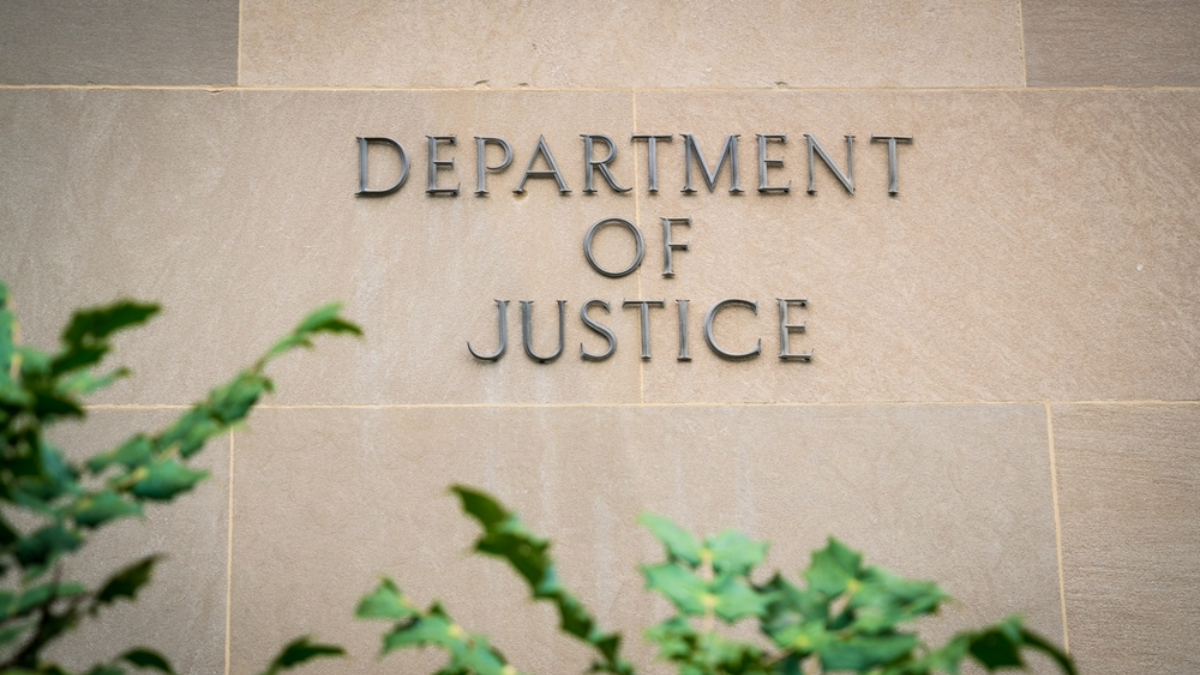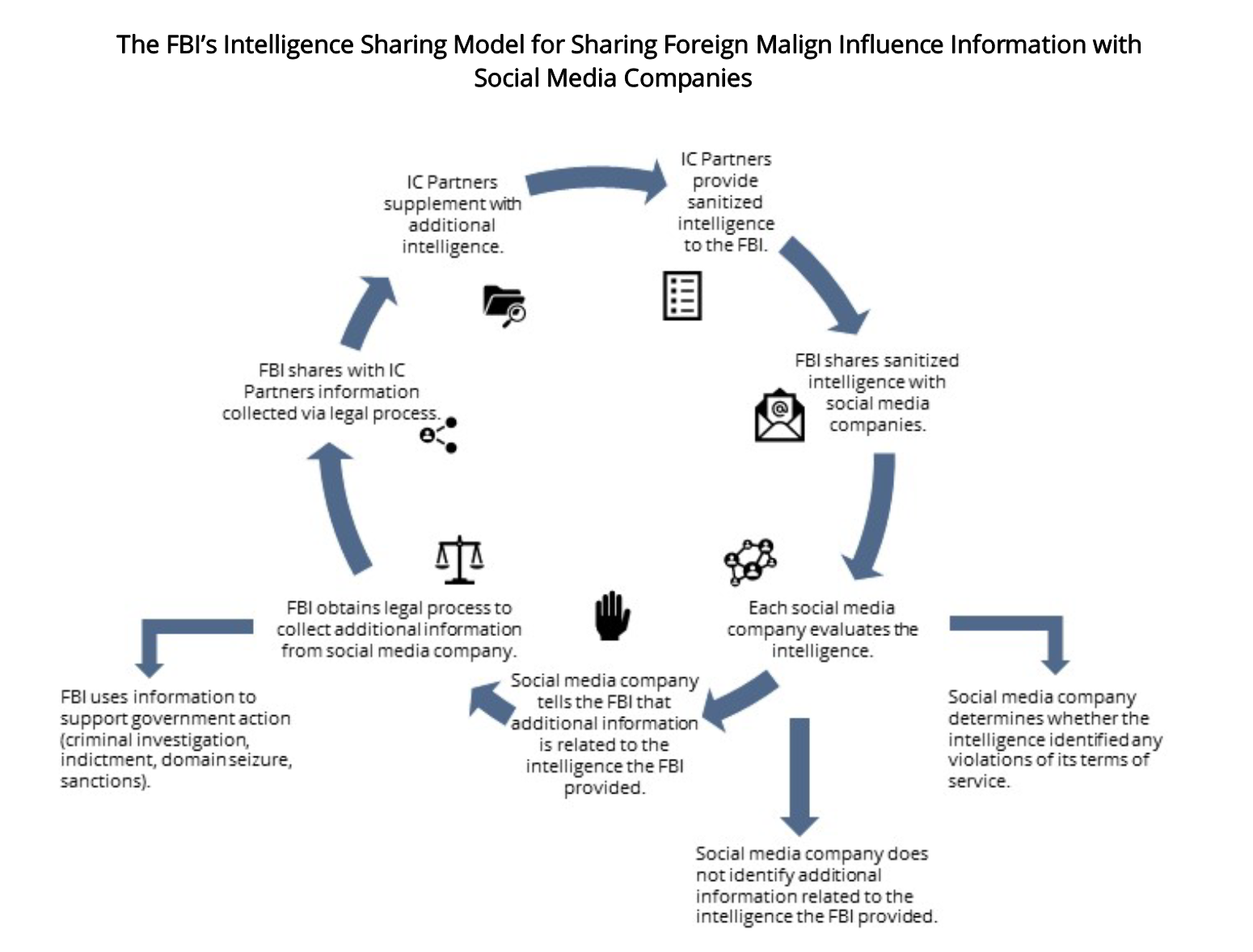US Department of Justice Promises to Declassify Standard Operating Procedure for Coordinating with Social Media Platforms
Justin Hendrix / Jul 26, 2024This piece is co-published with Just Security.

The Department of Justice in Washington, DC. Shutterstock
After the US Supreme Court punted, just last month, on First Amendment questions concerning how U.S. law enforcement agencies should interact with social media companies, the Department of Justice is now days away from declassifying its operating procedures for handling such matters. That outcome is the result of a multi-year investigation by the Department’s Office of Inspector General (OIG), which released a report earlier this week.
Background
In late June, the Supreme Court ruled in favor of the Biden administration in Murthy v Missouri, a case that concerned whether the federal government violated the First Amendment rights of citizens by allegedly coordinating with social media platforms to remove disfavored speech. In a 6-3 ruling, the Supreme Court reversed the decision by the Fifth Circuit, finding that the plaintiffs did not have standing to bring the case, since the evidence failed to connect any specific moderation decision by the platforms to inappropriate government influence.
The case’s path to the Supreme Court started on May 5, 2022, when Missouri Attorney General Andrew Bailey filed a lawsuit accusing Biden administration officials of either coercing or colluding with tech companies in a “coordinated campaign” to remove disfavored content. Among the defendants named in the suit were the Section Chief of the Federal Bureau of Investigation’s Foreign Influence Task Force (FITF), and a special agent in the San Francisco division of the FBI who regularly interacted with social media platforms. The suit alleged that “communications” that influenced Meta’s decision to temporarily limit the propagation of a story about Hunter Biden’s laptop ahead of the 2020 election emerged from the FITF.
The allegations in the suit sparked a wave of congressional investigations, and while its most lurid claims turned out to be flimsy or bogus on inspection, fair-minded experts generally agree that there should be clearer rules about how social media platforms interact with the federal government, particularly when it comes to law enforcement, security, and intelligence agencies. Missouri’s Attorney General was likely unaware at the time he filed his suit that the Justice Department’s Inspector General had already initiated a probe to look into the subject. This week, the OIG published the result of its effort in a report titled, “Evaluation of the U.S. Department of Justice’s Efforts to Coordinate Information Sharing About Foreign Malign Influence Threats to U.S. Elections.”
The Next Phase
The report says that OIG’s goal was to assess the effectiveness of the Justice Department’s system for sharing information related to “foreign malign influence directed at U.S. elections,” to evaluate “the Department’s oversight and management of its response,” and to help streamline or otherwise improve the department's processes. The evaluation, which included fieldwork that commenced in October 2021 and concluded in April 2023, focused on “information sharing with social media companies to evaluate the aspect of the Department’s information-sharing system that the FITF developed following foreign malign influence directed at the 2016 U.S. presidential election.” During that election cycle, a substantial campaign by the Russian government gave rise to concerns over social media platforms as a vector for foreign influence.
The OIG report found that while the FBI had developed an “intelligence sharing model” (depicted in a graphic reproduced below) involving various actors in US law enforcement and intelligence communities and social media companies, there was in fact a significant gap in policies and guidance governing interactions between the government and the platforms. Until February 2024, when the OIG report says the Department of Justice issued a new standard operating procedure (SOP), there was no formal policy, which the OIG says created potential risks such as the perception of coercion or undue influence over private entities and, in turn, the speech of American citizens. The SOP, which is contained in a classified document, sets criteria for determining what constitutes foreign malign influence, lays out supervisory approval requirements for investigating it, and provides standard language for disclosures and guidance on engagement with social media companies, according to the OIG report.
While the OIG says that the operating procedure is an improvement, it notes the information’s classified nature is a drawback. “Because DOJ’s credibility and reputation are potentially impaired when its activities are not well understood by the public, we recommend that the Department identify a way that it can inform the public about the procedures it has put into place to transmit foreign malign influence threat information to social media companies in a manner that is protective of First Amendment rights,” the report says.
The report also notes that DOJ lacks “a comprehensive strategy guiding its approach to engagement with social media companies on foreign malign influence directed at U.S. elections,” a circumstance that resulted “in varied approaches to its information-sharing relationships with social media companies depending on where those companies were based,” a particular problem when firms are foreign-owned or located outside of the US.
While the OIG found that the FBI’s model for tracking foreign influence and sharing that information with social media companies primarily relied on identifying foreign actors rather than monitoring for specific types of content, the report does note that there were instances where the FBI did share “content” information, such as specific posts, with social media companies in order to alert them to specific themes or narratives that foreign actors intended to promote. This is a particularly fraught area, as it opens the door to the types of risks that were at the core of the original complaint in Murthy v Missouri.
The OIG report makes two recommendations “to address risks in DOJ’s mission to combat foreign malign influence directed at U.S. elections,” including that the department:
1. Develop an approach for informing the public about the procedures the Department has put into place to transmit foreign malign influence threat information to social media companies that is protective of First Amendment rights.
2. Develop and implement a comprehensive strategy to ensure that the Department of Justice’s approach to information sharing with social media companies to combat foreign malign influence directed at U.S. elections can adapt to address the evolving threat landscape.
The DOJ’s response to the OIG report, located in an appendix, notes that the department concurs with the first recommendation, and plans to address it “by making publicly available a detailed summary version of the SOP and posting that summary on DOJ's website by July 31, 2024.” The response notes that the SOP emerged from the development of “a standardized approach” to sharing information on foreign influence operations that kicked off after the Supreme Court issued a stay of the Fifth Circuit injunction that temporarily prohibited contact between agencies such as the FBI and social media firms.
DOJ also concurred with the second OIG recommendation, and plans to address it with “additional actions by August 31, 2024,” including:
Development and Release of Strategic Principles. DOJ will set forth in a public manner the principles reflecting DOJ' s strategy for sharing FMI information with social media companies to combat the evolving threat landscape.
Resumption of FBI's Regular Meetings with Social Media Companies. As part of that strategy, FBI will resume regular meetings in the coming weeks with social media companies to brief and discuss potential FMI threats involving the companies' platforms. FBI will conduct these meetings-as FBI did before pausing the meetings in summer 2023 due to the now-vacated Missouri injunction (see infra at 5)--in a manner that is entirely consistent with applicable first Amendment principles. As has been FBI' s practice, FBI will conduct these engagements with social media companies located across the country, depending on the circumstances and nature of the potential threats.
Outreach by FBI Field Offices, to Social Media Companies. FBI will instruct FBI Field Offices in the coming weeks to conduct outreach– in coordination with the FBI's Foreign Influence Task Force (FITF)– to any identified social media companies located in their areas of responsibility, to develop contacts at those companies and ensure they are aware of the SOP and DOJ' s overall approach for engaging with social media companies regarding FMI threat information.
Engagements by Senior Officials. In the coming months, senior DOJ officials will highlight and explain, during public engagements with relevant stakeholders and the public, DOJ's strategy for information sharing with social media companies to combat FMI directed at our elections.
Launch of DOJ Website Page. DOJ plans to launch a new section on its website dedicated to ensuring public awareness of DOJ's strategy for engaging with social media companies regarding FMI. The website page will collect and highlight in a single location relevant resources, guidance, and other materials, including the summary of the SOP discussed above.
The OIG report notes that the relationship between the FBI and social media companies has been successful in disrupting multiple campaigns by foreign actors to interfere in US elections. Whether the DOJ, FBI, and other security and intelligence agencies can effectively quell public fears not about foreign interference but rather about their own government’s interference in elections is an open question; certainly, these recommendations and the DOJ’s responsiveness to them should help.
Authors

